
Contaminated blood victims said they are living with survivor’s guilt as their lives continue to be blighted by the lasting effects of the worst scandal in NHS history.
The Infected Blood Inquiry has laid bare the scale of the failings within the NHS which left tens of thousands of people in the UK infected with deadly viruses.
Between the 1970s and early 1990s, patients were given contaminated blood and blood products. This includes people who needed blood transfusions for accidents, in surgery or during childbirth, and patients with certain blood disorders who were treated with donated blood plasma products or blood transfusions.
Some 3,000 people have died and others have been left with lifelong health complications after being infected with viruses including hepatitis C and HIV.
Have you been affected by this? Email jabed.ahmed@independent.co.uk
Here are some of the victims and campaigners who have spoken out ahead of the final report.
Janine Jones and her brother Mark Payton
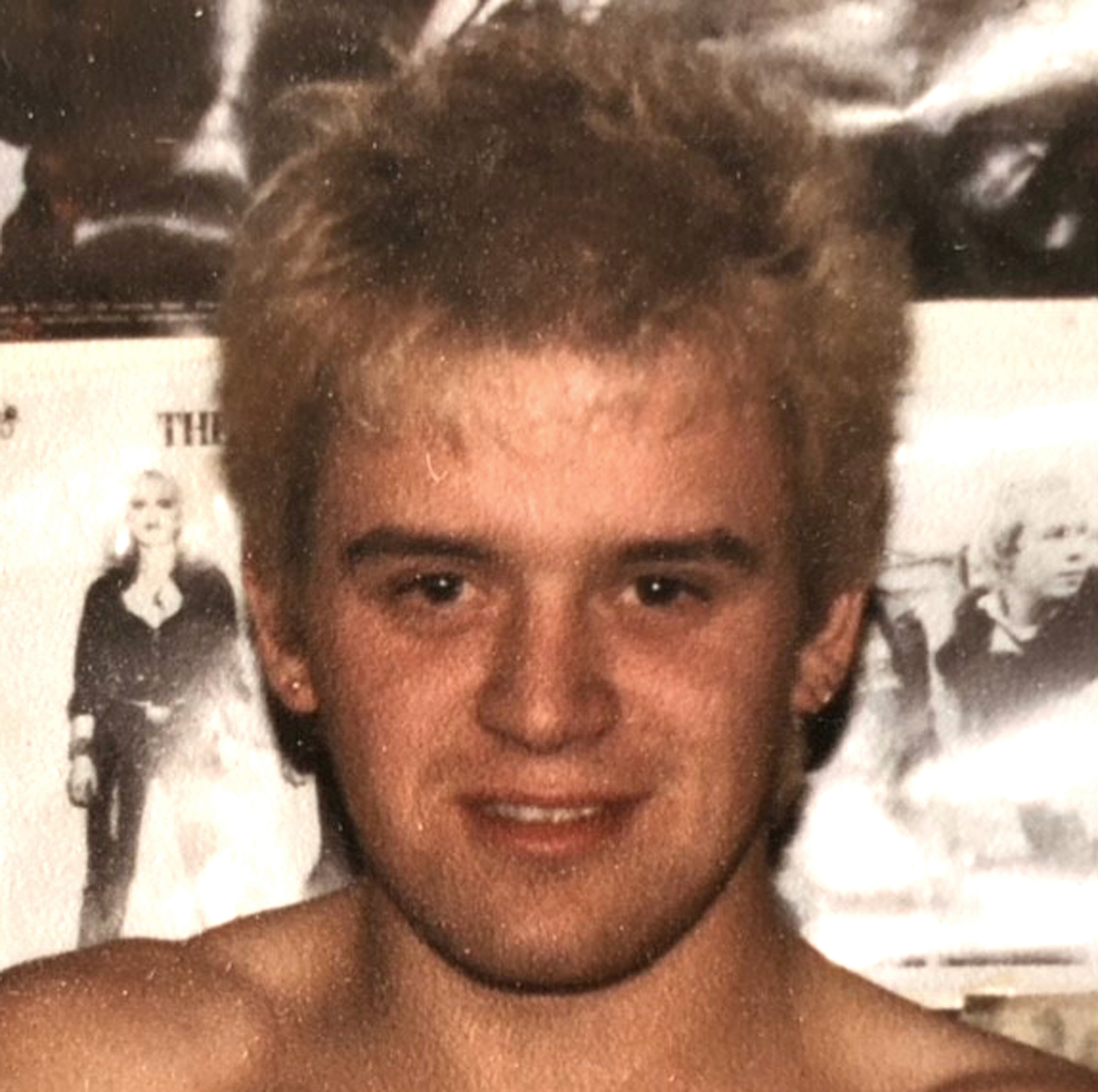
Former pupils of a boarding school where boys with haemophilia were infected with contaminated blood have said they were told to “carry on as normal” as their peers became sick.
More than half of the boys treated for haemophilia at Lord Mayor Treloar College between the 1970s and 1980s are now dead.
A grieving sister has described how her brother loved the school and would have been devastated to see the stories that have since emerged about it.
Janine Jones’s brother and former pupil Mark Payton died when he was 41 after being co-infected with both hepatitis C and HIV.
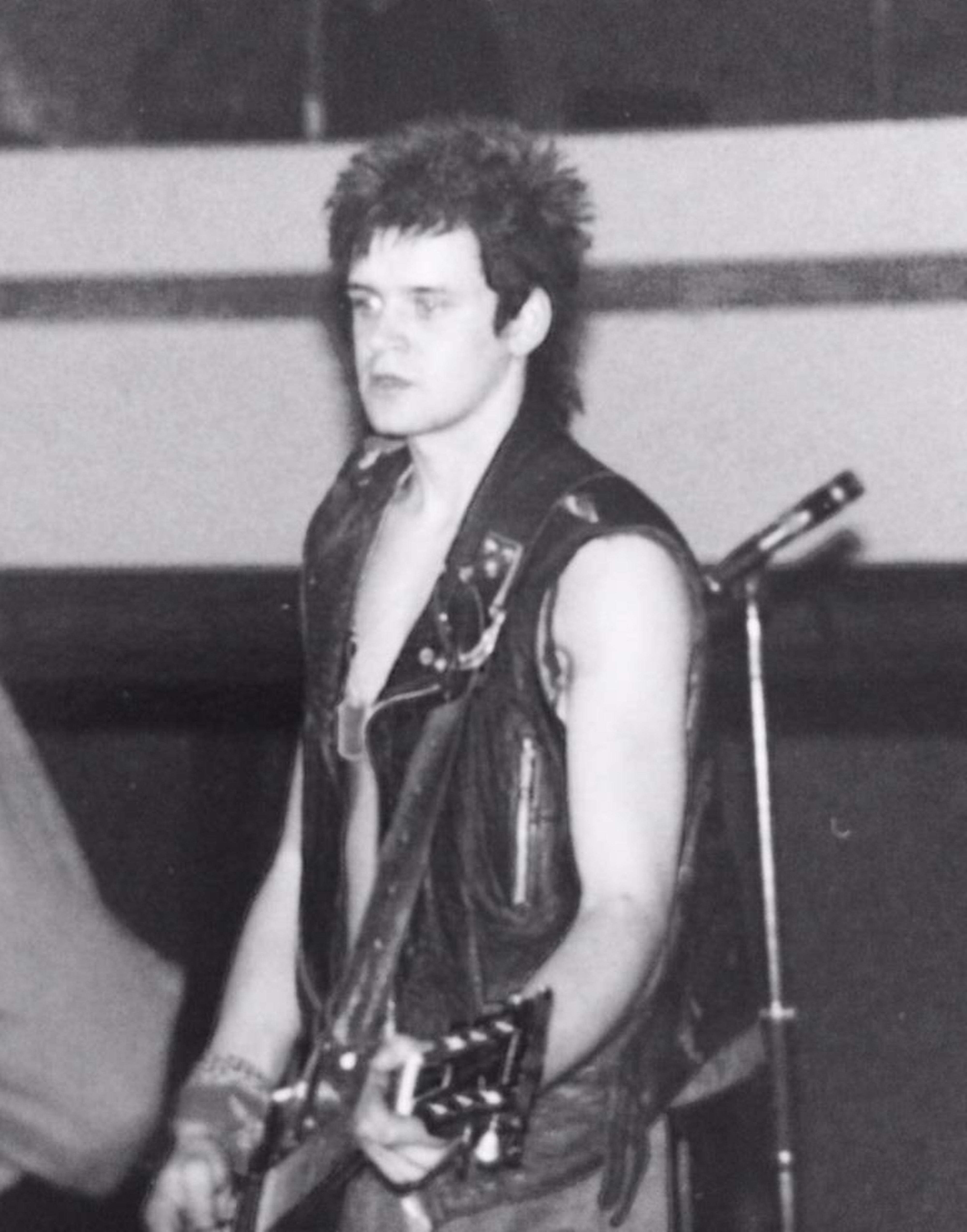
Ms Jones, 59 from Coleshill, Warwickshire, said: “Mark moved to Treloar’s in 1972 when he was 11. He was there until 1979, he actually stayed on, he loved it that much. To be honest, I’m glad he’s not here to witness what we are seeing now – it would have really affected him.
“My parents never got over it really, the fact that he was infected – they thought they were doing the best for him, sending him to Treloar’s to get a decent education.
“He missed a lot of education, most of his schooling when he was small was done on the children’s ward at the hospital in Birmingham.
“They were more than happy the inquiry was happening but unfortunately they have both passed away without any recognition for their son dying at all.”
Out of 122 boys treated at the school for haemophilia between 1970 and 1985, some 75 have since died.
Steve Nicholls
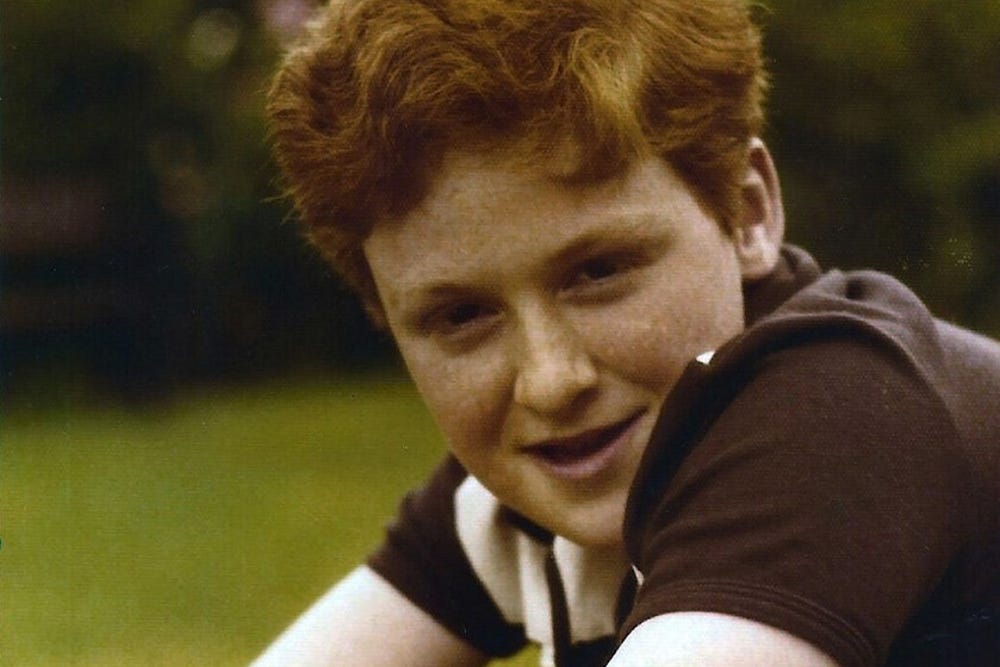
Steve Nicholls, 57, from Farnham, Surrey, attended the Lord Mayor Treloar College between 1976 and left in 1983. Of his class of 20 boys, just two are still alive.
“During the time we were there, we were blissfully unaware of what was going on behind the scenes,” he said. “At that time we were treated very well. We had the best life experiences. “We became like brothers because we grew up together, we ate together, we played games together, we learned together and we were treated together.”
He described how pupils would see peers becoming ill, adding: “It wasn’t uncommon to see our peers becoming yellow and jaundiced, which we now know was hepatitis.
“But we were just told: ‘Not to worry about you’ll be all right. Just carry on as normal, go and play football, go to lessons as normal.’
“And it was the norm, we knew no different, we had no suspicions.”
Mr Nicholls was infected with both hepatitis B and hepatitis C.
Asked how his health is now, he said: “It’s not good, I mean we just plough on and make the most of every day because we don’t know how long we got left.
“We’re a strong old bunch there and that was driven into us at Treloar’s, you know, to strive and to achieve. We all left there got good jobs, formed good careers, and worked for as long as we could until our health failed us.
“And now we’re in a position now where none of us can work. None of us have got pensions. None of us have got mortgages, none of us can get life insurance.”
Amanda Patton and her brother Simon Cummings

Amanda Patton’s brother Simon Cummings was infected with HIV through his treatment for haemophilia and died in 1996, aged 38.
Ms Patton, a garden designer from Surrey, said: “He phoned me in September of that year and he said: ‘I’ve got good news and bad news, the bad news is that they’ve given me between two and six months (to live), but the good news is I don’t have to go to the dentist again.’ It was just typical of him, absolutely typical.”
She added: “People say that time heals, but it doesn’t – what happened to him was so awful, he would have been 65… all those years he was denied, it’s all the ‘might have beens’ as well as everything else.”
Mr Cummings was one of the original presenters at an independent radio station in Surrey and Hampshire called County Sound.
“There’s no doubt that the haemophilia did have a big impact on him… but it never stopped him,” Ms Patton said. “He became a very well known local personality and was incredibly popular.
“Simon was just an absolute natural on the radio and everybody adored him. He had a fantastic sense of humour. He was wonderful.”
Mr Cummings died in December 1996 and Ms Patton wants to create a garden for people with haemophilia at the Chelsea Flower Show.
Martin Reid
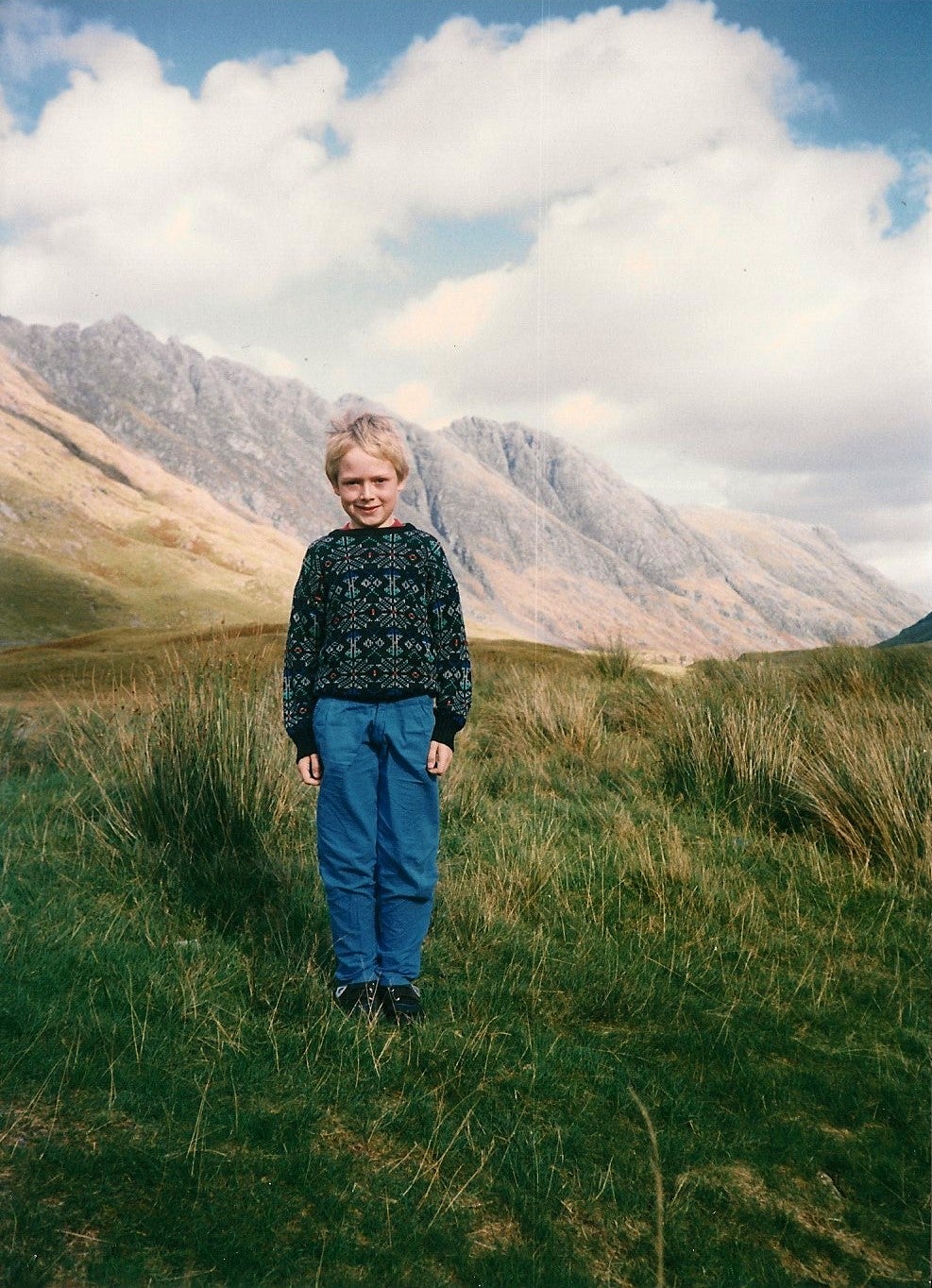
Martin Reid from Insch, Aberdeenshire, has described the lifelong impact after being infected with hepatitis C as a child while receiving treatment for his haemophilia.
After treatment, Mr Reid’s hepatitis was cleared in 2011, but he has been left with lasting effects from the virus including anxiety and depression.
“My parents were both distraught about it – they felt a lot of guilt about it, I guess as any parent would,” he said.
The 44-year-old added: “There is something ironically morose about the fact that I tell people that I’m ‘one of the lucky ones’.
“They say: ‘But you’ve got a disease that could have killed you.’
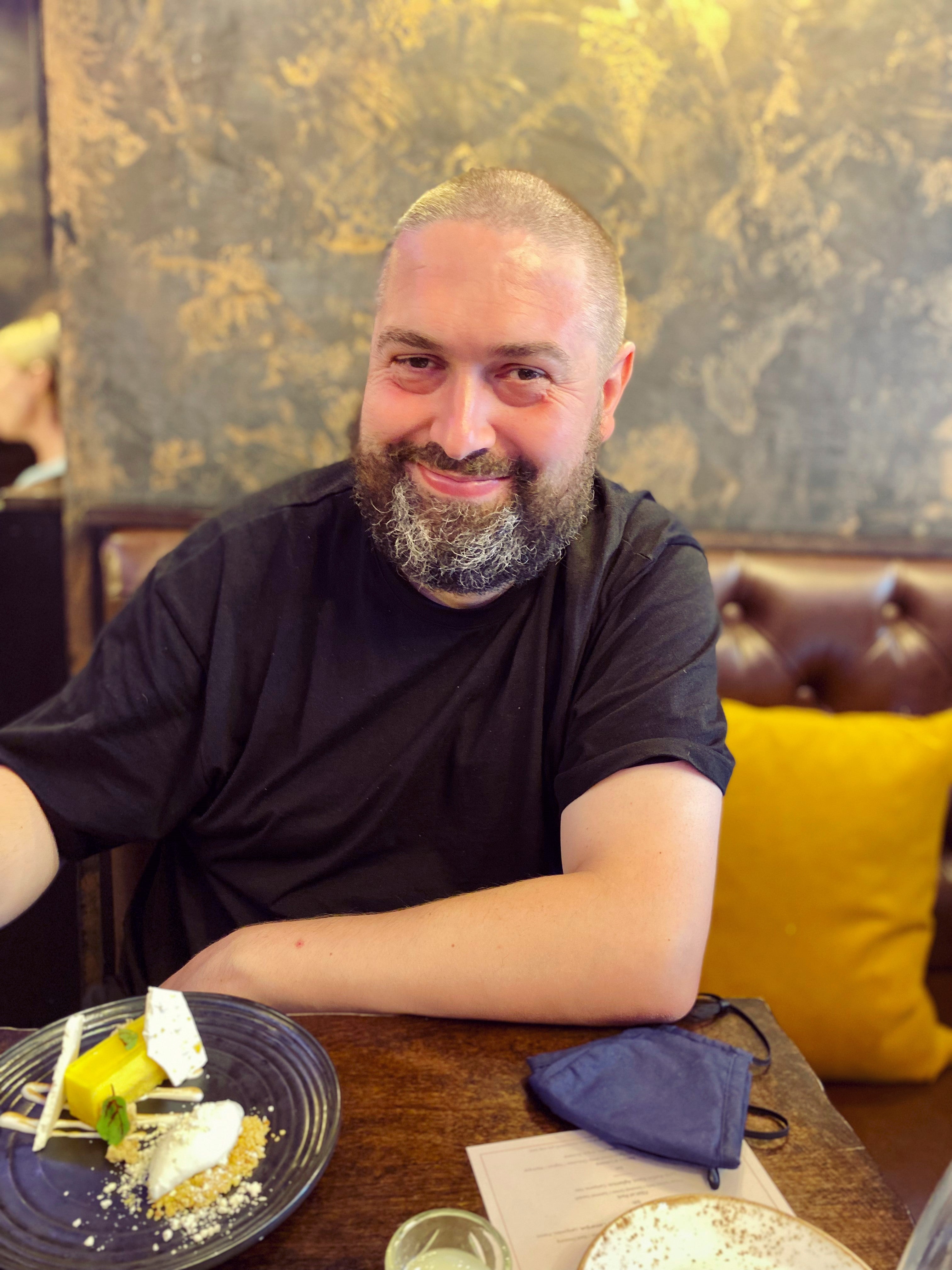
“I say: ‘I consider myself one of the lucky ones that wasn’t infected with HIV, like so many other people were, and I have lived to the age where I have been able to have a family, I am still here. so I do feel like one of the lucky ones.
“But I do feel a sense of survivor’s guilt – especially as the inquiry has been hearing so many harrowing and heartbreaking stories about people’s children being infected and dying at a very early age, or people being infected, never being told and subsequently going on to infect other members of their family.”
Becka Pagliaro and her father Neil King
Becka Pagliaro’s father Neil King, was co-infected with both HIV and hepatitis C while receiving treatment for haemophilia. He died in 1996 when he was 38.
Mr King boarded at Treloar’s in the 1970s and stayed in the area and continued having his treatment at the centre there.
Ms Pagliaro said: “He went there for all of his schooling, he didn’t go back home afterwards and stayed in the area and carried on getting his treatment from the centre there right up to his death.
“They were very close to him, the doctors there almost felt like family. It feels like a big betrayal.”
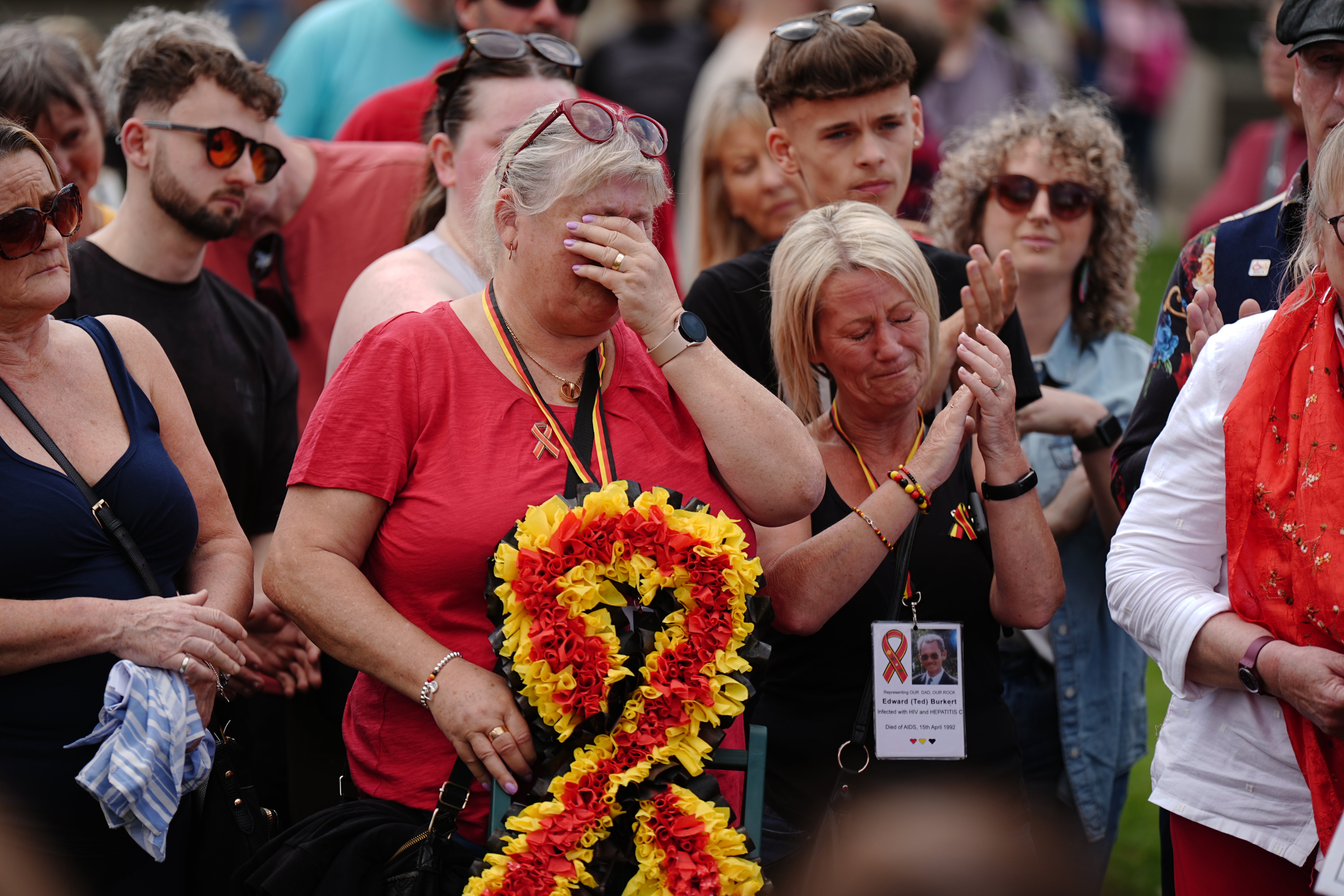
Suresh Vaghela
Suresh Vaghela, of Leicester, said he was feeling “nervous” ahead of the final report.
The 61-year-old started receiving contaminated Factor VIII blood product to treat his haemophilia when he was around 13 years old, and was told when he started university in 1983 that he had HIV and had two months to live.
In the early 1990s, he discovered he had also been infected with hepatitis C.
“We feel emotional at the moment in the sense that it’s like a 40-year-old fight, and it’s coming to an end and we’ve come to the end of our energy levels,” he said.
Mr Vaghela said he wanted a “meaningful apology”, decent compensation and for pharmaceutical companies “to pay for what they’ve done”.







